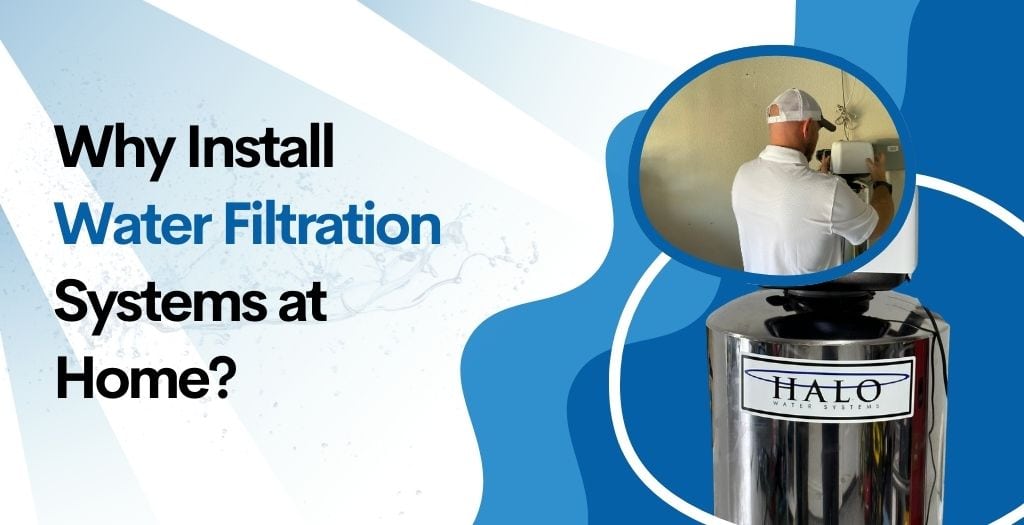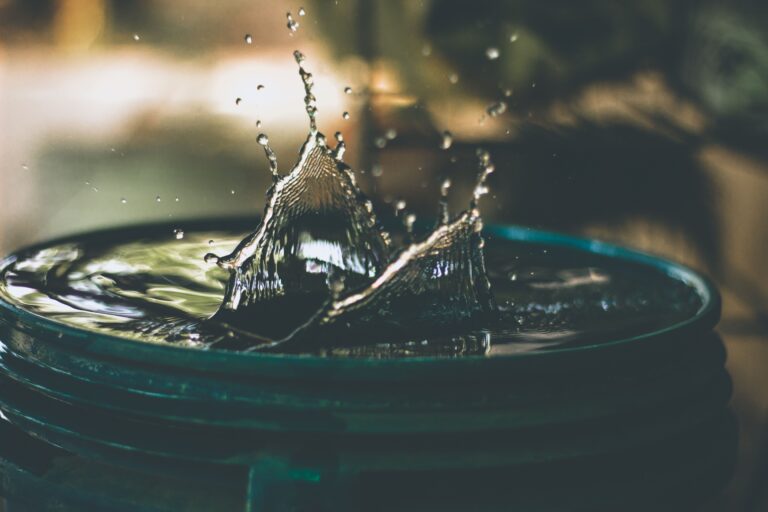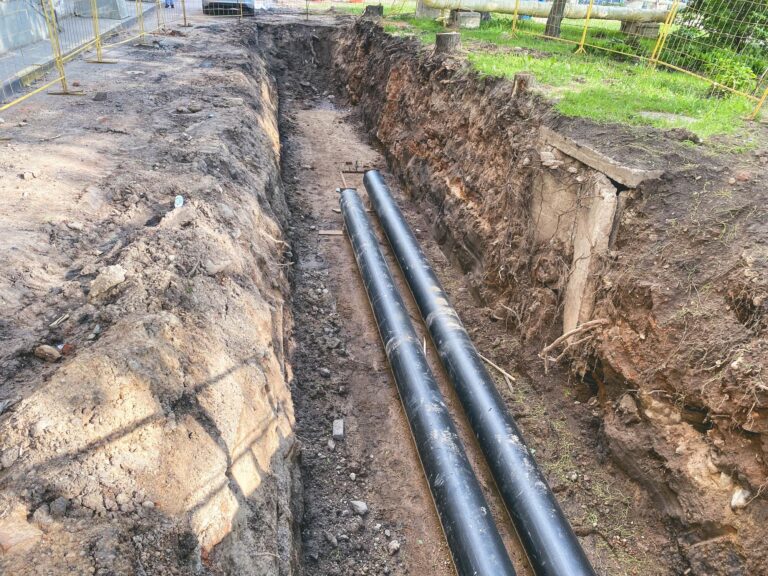Is Your Tap Water Safe? Why Water Filtration is a Smart Investment
Water is essential to everyday life, from drinking and cooking to cleaning and bathing. Yet, most homeowners don’t question the quality of the tap water flowing through their pipes. While municipal water supplies are generally treated, that doesn’t always mean they’re entirely safe. Contaminants can still sneak into the system, making water filtration in the home more than just a luxury; it’s a necessity.
This article explores why water filtration is a smart investment for any household, delving into common contaminants, the benefits of home water filtration systems, and how to choose the right whole-house water filters.
Understanding Tap Water Safety: What’s Really in Your Water?

Municipal water treatment plants are designed to remove harmful bacteria and chemicals from water before it reaches homes. However, many people are surprised to learn that even treated water may still contain:
- Chlorine and chlorine (used for disinfection)
- Heavy metals like lead or mercury
- Pesticides and herbicides
- Micro-plastics and pharmaceutical traces
- Bacteria from aging pipes or system leaks
These substances may not always cause immediate health issues, but long-term exposure can have cumulative effects, especially in children, the elderly, and individuals with compromised immune systems. This raises the question: is your tap water really as safe as you think?
Why Install Water Filtration Systems at Home?

Choosing to install water filtration systems offers numerous long-term benefits. Beyond improving tap water safety, it ensures peace of mind for every glass poured from the faucet.
A. Health Protection
Water filtration in the home is a proactive step in protecting health. By removing a wide range of impurities, home water filtration systems reduce exposure to harmful chemicals and biological contaminants. This can lower the risk of gastrointestinal issues, developmental problems in children, and even certain cancers associated with prolonged exposure to pollutants.
B. Improved Taste and Odor
Filtered water often tastes better and smells fresher. Chlorine, sulfur, and metallic traces can give tap water an unpleasant flavor. A quality water filtration service can eliminate these additives, making hydration more enjoyable and encouraging healthier water consumption.
C. Skin and Hair Benefits
Chemicals in unfiltered tap water, like chlorine and hard minerals, can dry out skin and dull hair. Whole-house water filters address these issues at the source, improving the condition of your skin and hair without needing expensive cosmetic products.
D. Appliance Longevity and Maintenance
Unfiltered water containing hard minerals can cause scale buildup in appliances like dishwashers, washing machines, and coffee makers. Whole water filtration systems reduce mineral content, which can extend appliance life and reduce energy costs and maintenance.
Types of Home Water Filtration Systems
Not all filtration systems are created equal. Choosing the right system depends on your household’s specific needs and water quality issues.
A. Point-of-Use Systems
These are installed at individual water outlets, such as kitchen faucets or under the sink. They’re ideal for drinking and cooking water but do not address contamination throughout the home.
B. Whole-House Water Filters
Installed at the point where water enters the home, whole-house systems treat all water before it reaches any faucet. These systems offer comprehensive protection, improving water quality for drinking, bathing, cleaning, and laundry.
C. Reverse Osmosis Systems
Reverse osmosis systems are highly effective at removing a wide range of contaminants, including lead, arsenic, and nitrates. Often used for drinking water purification, they are usually installed under sinks and can be paired with other filters for best results.
Why Whole Water Filtration Systems Are a Smart Long-Term Investment ?
Whole-house water filters may require a higher initial investment, but their long-term value outweighs the cost. Here’s why:
A. Comprehensive Coverage
Instead of only purifying water at select outlets, these systems ensure every drop used in the home, from the shower to the washing machine, is free of unwanted contaminants.
B. Cost Savings Over Time
While bottled water and frequent appliance repairs may seem like minor expenses, they quickly add up. A whole water filtration system reduces these recurring costs significantly.
C. Eco-Friendly Solution
Filtered tap water reduces reliance on single-use plastic bottles, helping to protect the environment and reduce your household’s carbon footprint.
D. Increased Home Value
As homebuyers become more health-conscious, having a water filtration system service already installed can be an attractive selling point that enhances property value.
Signs You Need Water Filtration in Your Home
Not all water issues are visible or immediate. However, there are warning signs that your home could benefit from a water filtration service:
- Stains or discoloration on sinks and tubs
- Metallic or chemical taste in water
- Unusual odors from tap water
- Dry skin or dull hair after showers
- Scale buildup on faucets or appliances
A professional water quality test is the best way to determine if your home needs a water filtration system. Many reputable providers offer this service before recommending a system tailored to your water’s specific makeup.
Choosing the Right Water Filtration Service
Investing in home water filtration systems requires more than just picking a product off the shelf. Professional water filter installation ensures the system is set up correctly and performs as expected. Look for providers who offer:
- Water quality testing
- Customized filtration recommendations
- Licensed and insured installation
- Ongoing water filtration system service and maintenance
Companies like CR Plumbing provide expertise in evaluating your home’s needs and installing high-quality filtration systems that deliver lasting results.
What to Expect During Water Filter Installation?
A professional installation typically follows these steps:
- Water analysis and consultation
- System selection based on water needs and budget
- Placement planning (whole-house or point-of-use)
- Installation of plumbing components and filters
- System testing and maintenance guidance
Whole-house installations may require plumbing adjustments, but most services can be completed within a day. The result is cleaner, safer, better-tasting water for years to come.
Maintenance and Support: Ensuring Ongoing Performance
Even the best filtration systems require occasional maintenance. Filters must be changed according to manufacturer recommendations, and periodic inspections can help identify issues before they affect performance.
Partnering with a trusted water filtration system service provider ensures your system remains in peak condition. Ask about maintenance plans that include filter replacements and system checks to keep your water clean and your investment protected.
Clean Water Is No Longer Optional !
In today’s world, access to clean, safe water inside the home is not something to take for granted. While public utilities do their best, residual contaminants, aging infrastructure, and emerging pollutants pose risks that home water filtration systems are designed to counter. Whether it’s to protect health, enhance quality of life, or preserve appliances, the case for installing a water filtration system is clear.
Making this investment today means enjoying cleaner, safer, better-tasting water for years to come, with peace of mind included.
Frequently Asked Questions:
1. How do I know if I need a water filtration system in my home?
Ans. If you notice unusual odors, metallic tastes, stains on fixtures, or experience dry skin and dull hair after using tap water, it may indicate the presence of contaminants. The best way to determine the need is to have your water professionally tested for common pollutants like chlorine, heavy metals, and bacteria.
2. What is the difference between a whole-house water filter and a point-of-use filter?
Ans. A whole-house water filter is installed at the main water line and treats all the water entering your home, including for bathing, laundry, and dish-washing. Point-of-use filters, on the other hand, are installed at specific outlets like kitchen faucets and are typically used for drinking or cooking water only.
3. How often does a water filtration system need maintenance or filter replacement?
Ans. Maintenance frequency depends on the type of system and your household’s water usage. Most filters need to be replaced every 3 to 12 months. Whole-house systems may require annual servicing. Regular maintenance ensures your system continues to remove contaminants effectively.








